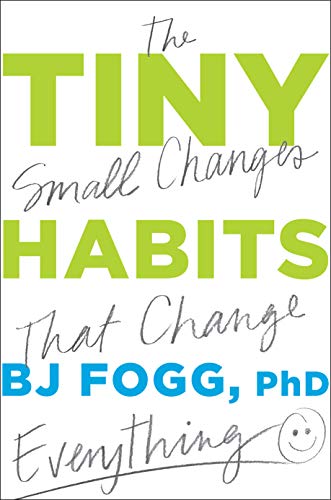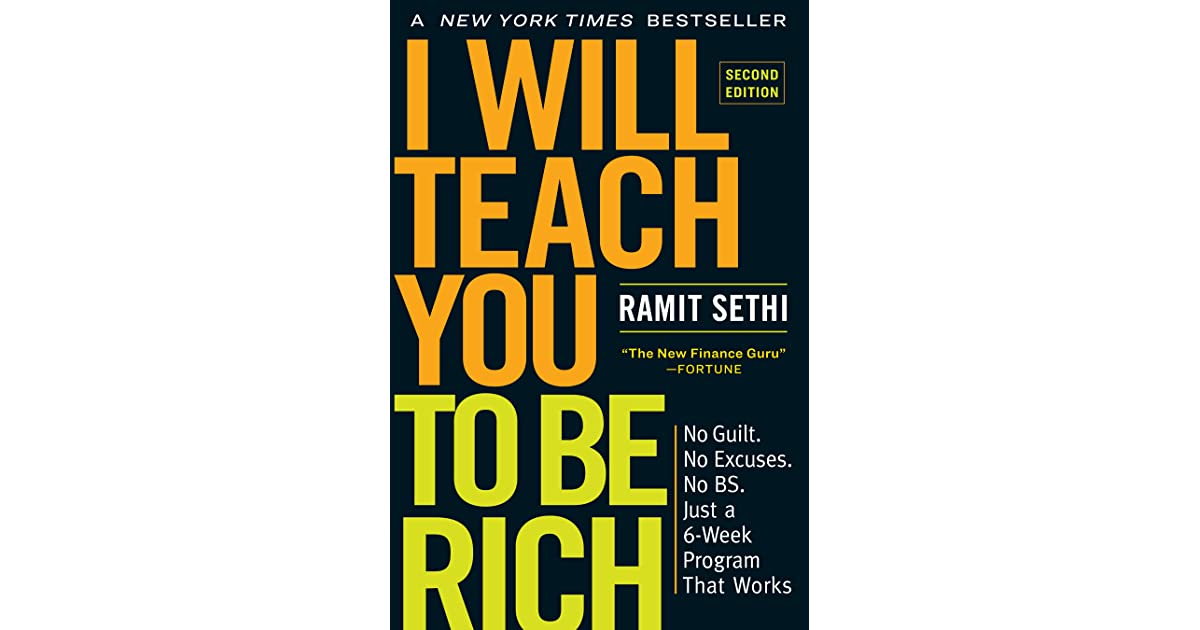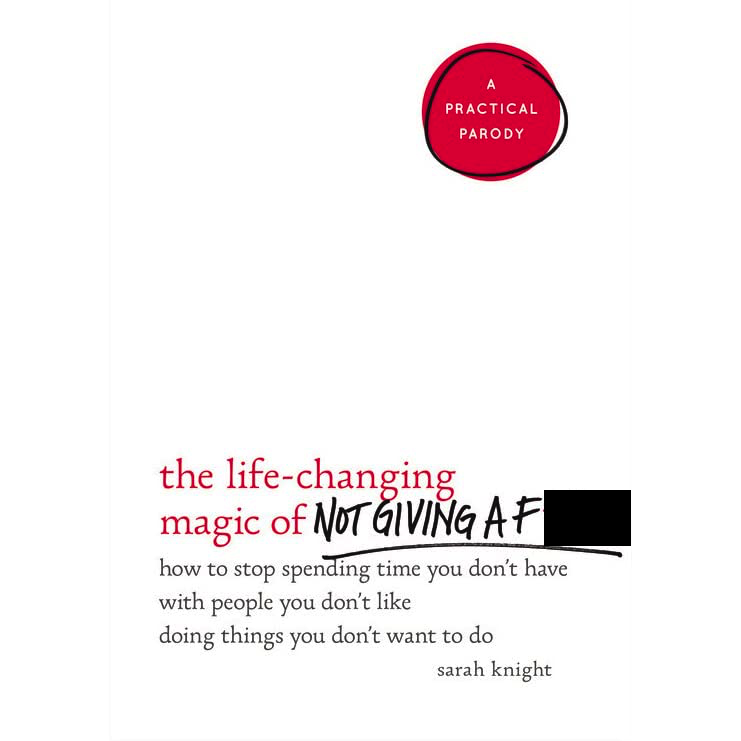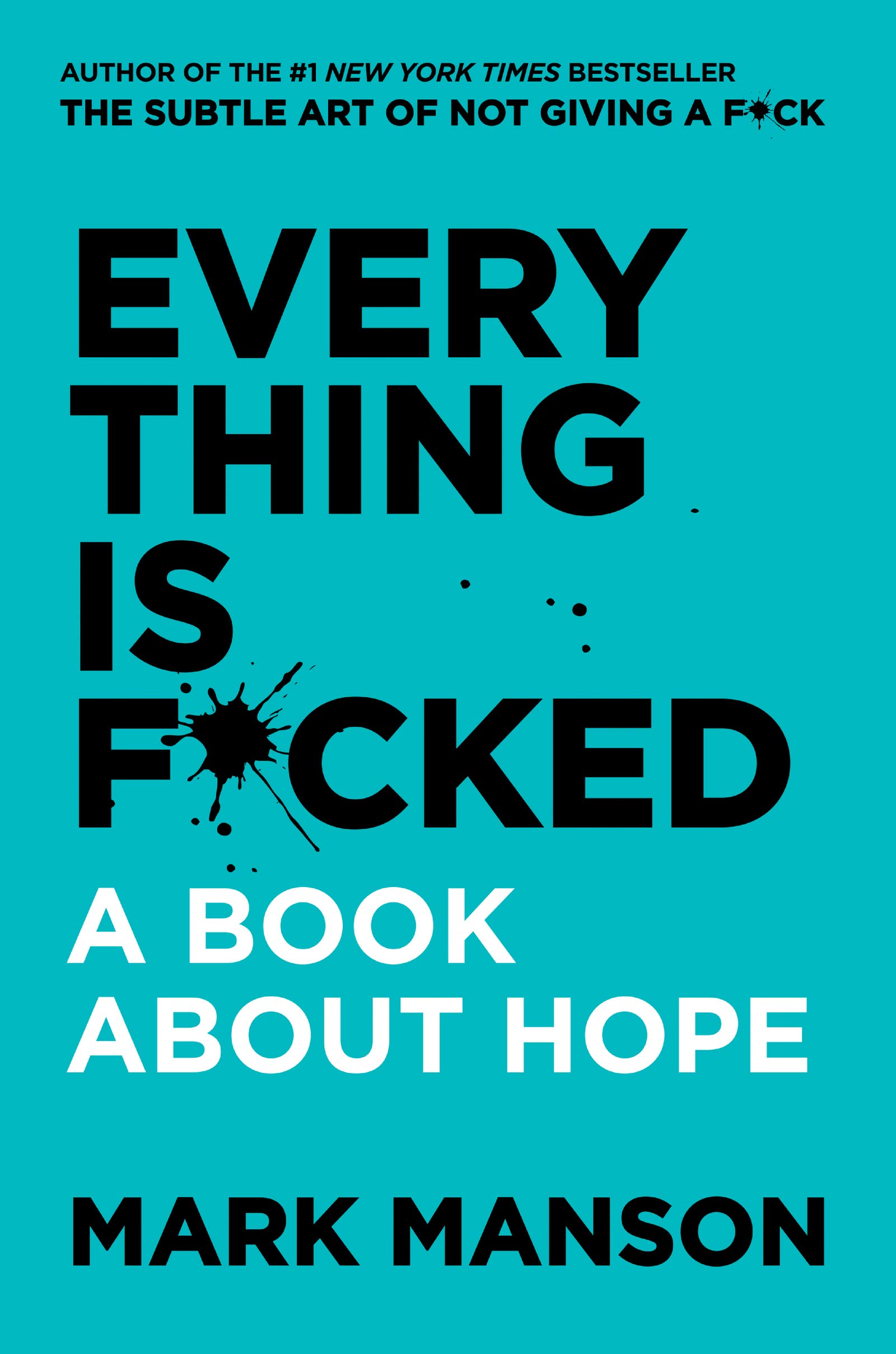If The Power of Habit is the father, and Atomic Habits is the son, then Tiny Habits is the holy spirit of books about habits.
I don’t really know what the hell that means, but my point is that they’re all really good fucking books about habits, that all very much have their own thing going.
Whereas The Power of Habit examines the importance of habits in society, and Atomic Habits digs deep on using habits to change your identity, Tiny Habits lays out the most convincing case yet of how to actually build a new habit.
The key, as you might have guessed by the title, is in starting as tiny as possible.
Whereas other books (and admittedly often this website) place an emphasis on, “This will be hard. Do it anyway, loser,” Tiny Habits instead leans heavily into our psychology–most notably the following important fact: We don’t like doing hard things, and tend to find ways to avoid them.
The author, Stanford professor BJ Fogg does a great job of taking plain, obvious, undeniable truths like this (combined with years of research), and applying them to human behavior to help you suck a tiny bit less every day.
With this main idea in mind, Fogg begs the question: “What are the ways we can make a task (i.e. a new habit we want to build) easier?” The answers are simple:
1) Increase your skills.
2) Improve your tools and resources.
3) Make your behavior tiny–or put another way, stupidly easy.
Fogg mostly focuses on the third item in the book–to degrees that would seem extreme. One of his go-to examples for himself was that he wanted to work out more. So he started by doing two push-ups after every time he peed.
Two push ups. Two. As in by the time you finish reading this senten–he already did them.
At first glance, this might seem dumb as shit. I mean you pee, what, 6-8 times a day? What difference is 15 very spaced out push-ups going to make for you? None! You’ll have to start drinking water by the gallons every day before you’d feel cool about sending a bicep pic to any Tindr THOTs. You’ll have to give yourself water poisoning faster than an emotionally stunted frat boy during rush.

But if you just said to yourself, “This book is stupid. Those new habits won’t do anything,” and walked away, you’d be doing yourself a major disservice, and there’s a reason why:
Emotions Create Habits
Fogg argues heavily that emotions create habits, and if you think about it, it makes sense. Habits (once they actually become habits) are actions based in one’s subconscious. You don’t think about, and then decide to brush your teeth, or drive to work, or wipe your ass. These things are all being operated by the auto-pilot in your skull.
Your emotional decisions are similar. You don’t consciously decide to yell at your boyfriend for liking a girl’s thirst trap, or to eat an entire Costco bag of jalapeno Cheetos, or, if you are the boyfriend, to Like the girl’s thirst trap in the first place. These are all hormonal, emotional, non-decision decisions. They’re your autopilot going to work.
I hate to tell you this, but a horned up, lazy, emotionally unstable simpleton in your brain is making most of your decisions. Your natural reaction to that guy may be to say, “Dude, get the fuck out of my brain.” But since that won’t do anything, Fogg’s idea is to please him en route to making consistent, habitual decisions that don’t totally suck.

So the idea isn’t to start a new habit by just deciding to do the most difficult thing, and gritting your teeth and pulling yourself towards a painstaking action every day. The solution is to make the completion of a task in a positive direction an emotional win for you.
The importance of a habit, Fogg says, isn’t the size, but the consistency.
Fogg goes in depths about the specifics of habit formation in very useful ways, but when you break it down, the book mostly outlines a two-step process.
- Do the easiest, tiniest version of the habit you want to develop.
- Celebrate your tiny habit completion immediately and effectively.
The second step is just as important as the first, because you need to feel good about every accomplishment. It is absolutely crucial, as Fogg points out, that you feel what he calls “shine” after you complete your habitual behavior. “Shine,” in this context, is used to signify a joyous pride in what you’ve done.
If you make your habit tiny and doable, executing it is easy. Feeling shine, however, is complicated, and messy, and reliant on you as an individual.
The Challenge of Shine
Fogg recommends engaging in some kind of celebration after you complete your habit, like a fist pump, or a clap, or beating your chest and yelling Tarzan-style.
That last one is what I’ve tried, because creating shine for myself has been the hardest part of this book for me. As someone who demands a lot of myself, feeling a jubilant pride for not looking at my phone for five minutes inherently feels stupid, and it’s really hard to trick my brain into being like, “Durr! Good job, sport!”
But this is crucial, because it’s that link to a positive emotion that allows your brain to wire in this new behavior as a habit. This doesn’t come from a reward that you give yourself later. It doesn’t come from consciously acknowledging that this was positive and should continue. Fuck that. You feel nothing from that, and are therefore unable to wire in the habit.
Wiring in the habit comes from an immediate celebration that you feel in your brain after you’ve taken a positive action. This is the lynchpin for the entire book. As Fogg says, “Celebration is habit fertilizer,” but it only works if you feel the celebration. Otherwise, you’re just some asshole pumping his fist.
It’s only when you feel great about doing two push-ups after taking a piss that you feel motivated enough to do more. It’s only from this initial outsized positive feeling for this tiny action that you become ready to engage in bigger actions, and it’s only through this process that you really start to change your life.
So discovering your shine is worthy of some heavy trial and error. In fact, I might even say that this is the first step you should take on your journey of tiny habits. This whole thing breaks if you can’t find your way of feeling shine. So whether it’s a mantra you repeat to yourself over and over, a song you sing to yourself while your coworkers pull off one headphone and say “Oh, can you please not?”, or mimicking Jordan’s celebration after The Shot, it’s worth continually trying to figure this out.

What About Bad Habits?
Early in the book, Fogg discusses how single every behavior requires the following: time, money, physical ability, physical effort, mental effort, and being able to be repeated (continuing in your routine without having to adjust on the fly).
The more common problem people have however, is in breaking bad habits. For most of us, more than wishing we could do more, we have a whole bunch of shit we wish we weren’t doing. More than eating more salad, we wish we were eating fewer Doritos. More than doing more work, we wish we were wasting less time watching TLC shows. More than reading more, we wish we were spending less time ogling Insta THOTs.
Once again though, Fogg’s solution is deceptively simple: If you need all of these above listed items to complete a task, how can you remove one of them to break your bad habit? Can you put barriers between you and your bad habit? Can you place your cigarette money into a jar (literally or figuratively) that you can then eventually use to buy something even better than cigarettes?
I saw the real life application of this long before I read this book, and it had to do with my phone.
When I throw my phone far away, or leave it in the other room, I’ve increased the physical and in some ways mental effort to reach for it.
Even if you discount the physical effort that my lazy ass has to fight against, the act of having to walk over and grab it makes me more conscious of the fact that I’m doing it. Now my phone isn’t a reflexive pacifier, and instead to consciously decide to look at it.
Sometimes, this means I’ll still look at it. Maybe there’s a specific thing I want to check on, or maybe in that moment, I really specifically need to see what dank ass memes Grapejuiceboys has been posting.
But often, I’m able to stop myself and go, “No, not right now,” and it’s because the physical barrier made me stop for just long enough to successfully say, “Don’t be a dipshit, Will.” Usually my life is too automated to stop being a dipshit. I swear. It’s automation’s fault.
This also taps into another lesson of the book of removing prompts. Fogg argues that every habit is about a prompt, an action, and a celebration. If you remove one of those things, you remove the habit.
Prompt Removal: It Works Both Ways!
Similarly a prompt can be manufactured to help you continue on with your good habit. This can be a sound, or a visual cue, but the important part is that it signifies to you that it’s time to start your habit. Do this over and over. Practice it to wire the prompt into your brain, and you can change just about anything.
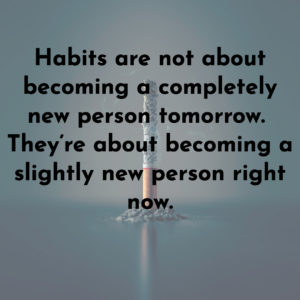
Don’t be afraid to start tiny. Habits are not about becoming a completely new person tomorrow. They’re about becoming a slightly new person right now. Then when you see how good that feels, you become a slightly newer person, and then a slightly newer person. They’re about starting small, and lifting a little bit more as you continue to feel stronger.
So if you have some ideal future version of yourself where you’ve written a novel, or are no longer smoking, or can lift a car, start tiny.
Start by lifting a box of pillows, congratulate yourself for doing it, and work your way up to being a superhero.


